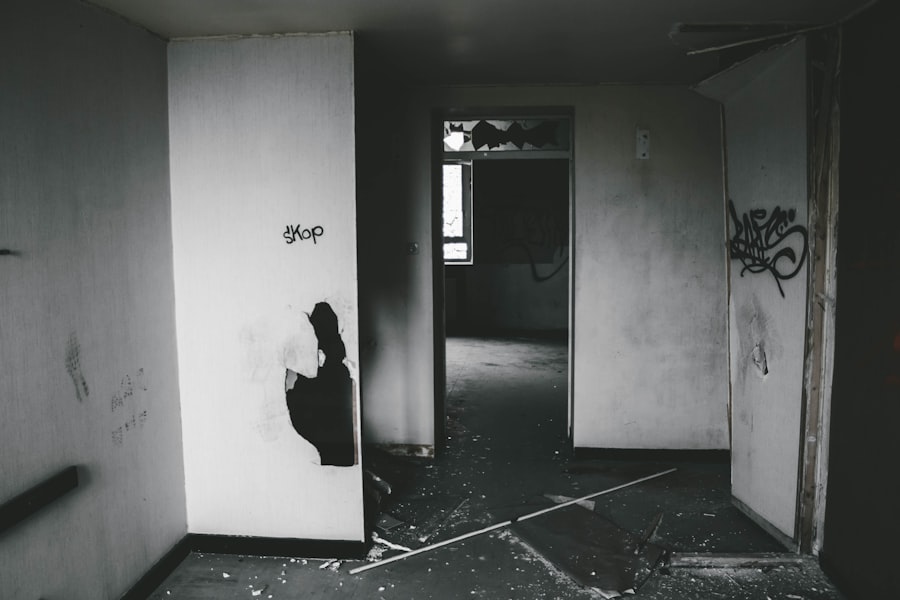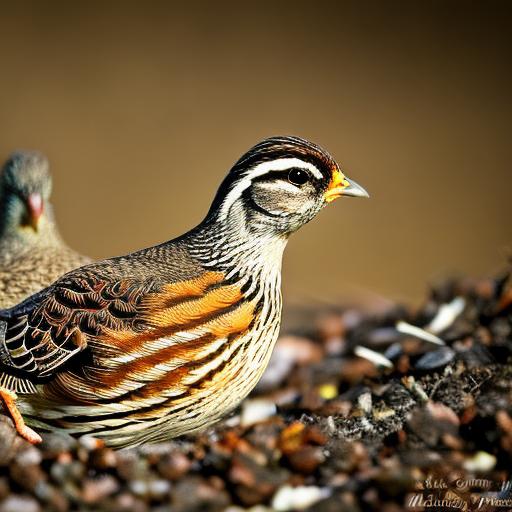Keeping quails indoors has become a popular trend among bird enthusiasts and urban dwellers. Quails are small, ground-dwelling birds that are relatively easy to care for and can be kept in a variety of indoor settings. Whether you live in an apartment, a suburban home, or a rural area, keeping quails indoors can be a rewarding and enjoyable experience. In this article, we will explore the pros and cons of keeping quails indoors, as well as provide tips for setting up a quail habitat, feeding and caring for indoor quails, addressing noise and odor concerns, and considering the legal and ethical implications of keeping quails inside.
Key Takeaways
- Keeping quails indoors can be a convenient and space-saving option for poultry enthusiasts.
- Pros of keeping quails indoors include easy access for care, protection from predators, and year-round egg production.
- Cons of keeping quails indoors include the need for proper ventilation, potential for odor, and limited space for natural behaviors.
- Setting up a quail habitat indoors requires a spacious and well-ventilated enclosure, proper bedding, and access to natural light.
- Feeding and caring for indoor quails involves providing a balanced diet, clean water, and regular health check-ups.
- Health and hygiene considerations for indoor quails include regular cleaning of the enclosure, monitoring for signs of illness, and providing dust baths for grooming.
- Addressing noise and odor concerns involves choosing quail breeds known for quieter calls and implementing proper waste management practices.
- Legal and ethical considerations for keeping quails inside include checking local regulations, providing adequate space and enrichment, and ensuring humane treatment.
Pros and Cons of Keeping Quails Indoors
There are several advantages to keeping quails indoors. One of the main benefits is that indoor quails are protected from predators and the elements, which can help ensure their safety and well-being. Additionally, indoor quails are less likely to spread diseases to wild bird populations, making them a more environmentally responsible choice for bird enthusiasts. Indoor quails also provide a source of fresh eggs and meat for their owners, making them a sustainable and cost-effective option for those interested in raising their own food. However, there are also some drawbacks to keeping quails indoors. Indoor quails require a suitable habitat that meets their specific needs, which can be challenging to create in a limited indoor space. Additionally, indoor quails can produce noise and odors that may be disruptive to their owners and neighbors. It is important to carefully consider these factors before deciding to keep quails indoors.
Setting Up a Quail Habitat Indoors
Creating a suitable habitat for indoor quails is essential for their health and well-being. Quails require a spacious enclosure with plenty of room to move around, as well as access to fresh air and natural light. A large cage or aviary with a solid floor is ideal for indoor quails, as it provides them with a secure and comfortable living space. The enclosure should also include perches, hiding spots, and nesting boxes to accommodate the natural behaviors of quails. Additionally, it is important to provide a substrate such as straw or wood shavings for the quails to scratch and dust bathe in. It is also important to consider the temperature and humidity levels in the quail habitat, as quails are sensitive to extreme heat and cold. Providing a heat lamp or heating pad can help regulate the temperature in the enclosure, while a humidifier can help maintain appropriate humidity levels. Overall, creating a suitable habitat for indoor quails requires careful planning and consideration of their specific needs.
Feeding and Caring for Indoor Quails
Feeding and caring for indoor quails requires attention to their dietary needs and overall well-being. Quails are omnivorous birds that require a balanced diet of seeds, grains, fruits, vegetables, and protein sources such as insects or mealworms. It is important to provide a high-quality commercial quail feed as the main component of their diet, supplemented with fresh fruits and vegetables. Additionally, providing access to grit and calcium supplements is essential for maintaining the health of indoor quails. Quails also require access to clean water at all times, which should be provided in a shallow dish or waterer that is easy for them to access. In terms of general care, indoor quails require regular cleaning of their enclosure to remove waste and soiled bedding. It is also important to monitor their health and behavior regularly to identify any signs of illness or distress. Providing enrichment activities such as dust baths, foraging opportunities, and social interaction with other quails can also help keep indoor quails happy and healthy.
Health and Hygiene Considerations for Indoor Quails
Maintaining the health and hygiene of indoor quails is essential for preventing disease and ensuring their overall well-being. Regular cleaning of the quail enclosure is important for removing waste and soiled bedding, as well as preventing the buildup of bacteria and parasites. It is also important to provide clean water and food at all times, as well as regularly clean and sanitize their feeding and watering dishes. Additionally, monitoring the health of indoor quails for signs of illness or injury is essential for early intervention and treatment. Providing regular veterinary care, including vaccinations and parasite prevention, can help ensure the long-term health of indoor quails. It is also important to quarantine any new quails before introducing them to an existing flock to prevent the spread of disease. Overall, maintaining the health and hygiene of indoor quails requires regular cleaning, monitoring, and proactive veterinary care.
Addressing Noise and Odor Concerns

One of the main concerns associated with keeping quails indoors is the potential for noise and odors to be disruptive to their owners and neighbors. Quails are known for their distinctive calls, which can be loud and repetitive, especially during the breeding season. To address noise concerns, it is important to consider the placement of the quail enclosure in a quiet area of the home or apartment, away from bedrooms or living spaces. Additionally, providing enrichment activities such as toys, perches, and hiding spots can help keep indoor quails occupied and reduce excessive vocalization. In terms of odor concerns, regular cleaning of the quail enclosure is essential for preventing the buildup of waste and soiled bedding that can contribute to unpleasant odors. Using absorbent bedding materials such as straw or wood shavings can also help control odors in the quail habitat. Overall, addressing noise and odor concerns associated with indoor quails requires careful planning, consideration of their specific needs, and proactive measures to minimize potential disruptions.
Legal and Ethical Considerations for Keeping Quails Inside
Before deciding to keep quails indoors, it is important to consider the legal and ethical implications of this decision. In some areas, there may be zoning regulations or homeowners’ association rules that restrict or prohibit the keeping of poultry or livestock indoors. It is important to research local laws and regulations regarding the keeping of quails indoors before making any commitments. Additionally, it is important to consider the ethical implications of keeping quails indoors, including providing them with a suitable habitat that meets their specific needs, ensuring their health and well-being, and respecting their natural behaviors. It is also important to consider the environmental impact of keeping quails indoors, including waste management and disease prevention. Overall, considering the legal and ethical implications of keeping quails indoors is essential for making an informed decision that aligns with responsible animal care practices.
In conclusion, keeping quails indoors can be a rewarding and enjoyable experience for bird enthusiasts and urban dwellers alike. However, it requires careful planning, consideration of their specific needs, and proactive measures to address potential challenges such as noise and odor concerns. By creating a suitable habitat, providing proper care and nutrition, maintaining health and hygiene, and considering legal and ethical implications, indoor quail owners can ensure the well-being of their feathered friends while enjoying the benefits of raising these fascinating birds in an indoor setting.
If you’re considering keeping quails inside, you may also be interested in learning about the different types of chicken coops that can be used for housing poultry. One article that provides valuable insights into this topic is “Hannah Montana Chicken Coop” on PoultryWizard.com. This article discusses the benefits and features of a specific type of chicken coop, offering practical advice for those looking to create a comfortable and secure environment for their feathered friends. Check out the article here to discover more about creating an ideal living space for your poultry.
FAQs
What are the benefits of keeping quails inside?
Quails can be kept inside for various reasons, including their ability to lay eggs, their small size, and their relatively low maintenance requirements.
What are the housing requirements for keeping quails inside?
When keeping quails inside, it is important to provide them with a suitable enclosure that is spacious enough to allow for natural behaviors such as dust bathing and foraging. The enclosure should also have proper ventilation and be easy to clean.
What do quails eat when kept inside?
Quails can be fed a diet of commercial quail feed, supplemented with fresh fruits and vegetables. It is important to provide them with a balanced diet to ensure their health and well-being.
What are the potential challenges of keeping quails inside?
Some potential challenges of keeping quails inside include managing their waste, providing adequate ventilation, and preventing boredom and stress. It is important to address these challenges to ensure the welfare of the quails.
Are there any legal restrictions on keeping quails inside?
It is important to check local regulations and zoning laws before keeping quails inside, as there may be restrictions on keeping poultry in residential areas. Additionally, it is important to consider the noise and odor that quails may produce when kept inside.
Meet Walter, the feathered-friend fanatic of Florida! Nestled in the sunshine state, Walter struts through life with his feathered companions, clucking his way to happiness. With a coop that’s fancier than a five-star hotel, he’s the Don Juan of the chicken world. When he’s not teaching his hens to do the cha-cha, you’ll find him in a heated debate with his prized rooster, Sir Clucks-a-Lot. Walter’s poultry passion is no yolk; he’s the sunny-side-up guy you never knew you needed in your flock of friends!







